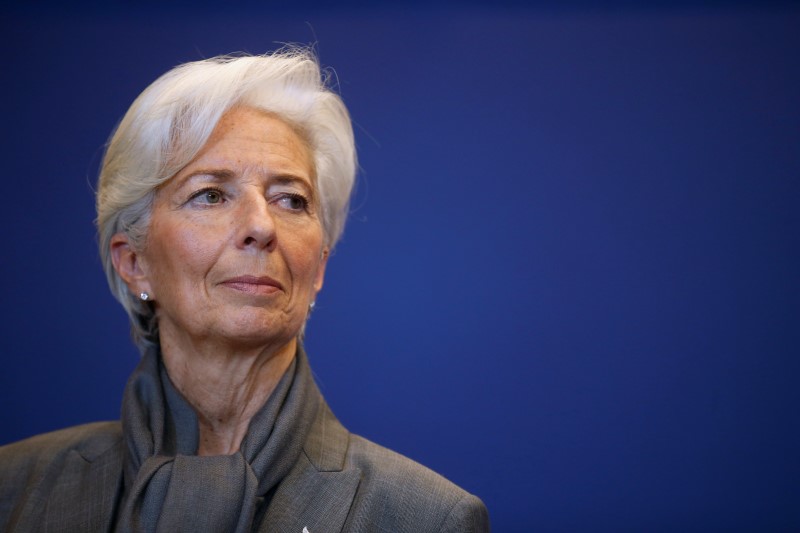(Bloomberg) -- Mario Draghi’s successor as European Central Bank chief will probably favor keeping up ultra-loose policy and stimulus when she takes office in November, according to Governing Council member Yannis Stournaras.
“There are strong monetary, economic, and financial arguments suggesting that the new ECB President, Christine Lagarde, will more or less continue along the same lines,” the Greek central bank governor said in an interview in Athens on Monday.
Stournaras was among the majority of policy makers who backed the inclusion of bond purchases in the stimulus package, which also featured an interest-rate cut, that was unveiled by Draghi on Thursday. While the president claimed “broad consensus” for the move, it was opposed by governors representing more than half the population and economic output of the euro region.
“There are costs and benefits to any decision,” Stournaras said. “But the benefits of taking action now exceeds to a large extent the costs.”
The governor, a member of the Governing Council since 2014, said that the stimulus was justified because of the poor economic outlook faced by the euro zone.
The decisions last week “were necessary because inflation remains very low, medium-term inflation forecasts have been revised downwards and remain far below the ECB’s objective and growth rates indicate a significant slowdown of the euro area economy,” he said. “In addition, risks remain tilted on the downside, especially those related to the trade war and a no-deal Brexit.”
Last week, Draghi intensified his call for governments to join his efforts in supporting the economy. He said then that “it’s high time for the fiscal policy to take charge.”
Stournaras backed that plea, saying that countries which have the means to add budget stimulus should step up to the plate for the common good. The Dutch may signal an end to their policy of debt reduction this week, though Germany remains highly reticent about spending more money.
“Fiscal policy in those euro-area member states with adequate fiscal and current account space does not contribute to the degree necessary to the recovery of the euro area economy,” Stournaras said. “Hence, monetary policy practically and unfortunately remains the only game in town.”
